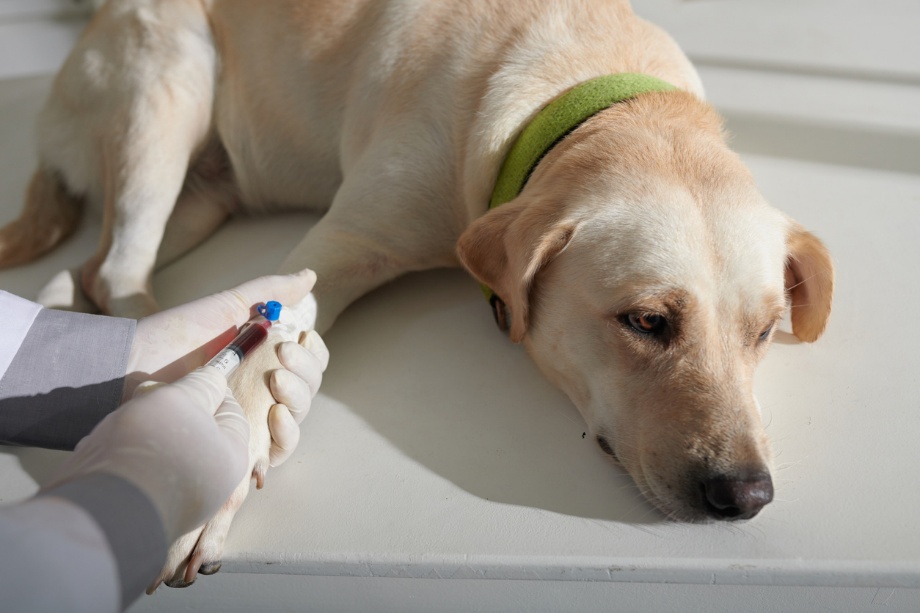At Schoolcraft Veterinary Clinic, we know your pet is not just a companion—they are family. And just like any loved one, their health and well-being are a top priority. Heartworm prevention is essential to protect your furry family members from one of the most dangerous and silent threats to their health. While it is easy to overlook—especially during colder months—heartworm prevention is a year-round necessity, even here in Michigan. That is why it is important to understand what heartworms are, how they affect pets, and most importantly, how to stop them before they start.
Understanding Heartworm Disease
Heartworms are parasitic worms that infect the heart, lungs, and blood vessels of pets. They are spread through mosquito bites, meaning that both indoor and outdoor pets are at risk. Once inside your pet, heartworm larvae grow into adults that can reach up to 12 inches long, causing severe and sometimes fatal heart and lung damage.
What makes heartworm prevention so important is how quietly the worms develop. Pets often show no signs until serious damage has already occurred, which is why protecting them before infection happens is critical.
Recognizing the Signs
Because heartworm disease progresses silently, it is often called the “silent killer.” Keep an eye out for these warning signs:
In Dogs:
- Persistent cough
- Fatigue after activity
- Decreased appetite
- Weight loss
- Advanced stages may show heart failure and abdominal swelling
In Cats:
- Coughing or asthma-like symptoms
- Vomiting
- Weight loss or loss of appetite
- In severe cases: fainting, seizures, or sudden collapse
Detection and Treatment

While heartworm prevention is the ideal approach, early detection of infection allows for better treatment outcomes. Your veterinarian may use various detection methods, such as:
- Blood tests to detect heartworm proteins or larvae
- X-rays to reveal lung and vessel damage
- Ultrasound to identify adult heartworms in the heart
Treatment for Dogs
If your dog tests positive:
- Stabilization if symptoms are severe
- Medications to kill adult worms (given in stages)
- Rest and follow-ups to monitor progress
Treatment for Cats
Unfortunately, there is no approved drug treatment for heartworm disease in cats, which is why heartworm prevention is so critical. Management of the disease typically includes:
- Medications to reduce inflammation
- Supportive care like oxygen therapy
- Regular monitoring with imaging and blood work
Prevention is the best approach because treatment is lengthy, expensive, and risky.
Heartworm Prevention: The Best Protection
Preventing heartworm disease is simple, safe, and far more cost-effective than treating an infection. Here is how you can protect your pet year-round:
- Monthly preventives: Available as chewable tablets, topicals, or injections. These kill heartworm larvae before they mature.
- Annual checkups: Regular testing ensures your pet is healthy and that preventives are working.
- Mosquito control: Keep standing water to a minimum, use pet-safe repellents, and limit outdoor time during dawn and dusk.
Why a Prescription is Necessary
According to the American Veterinary Medical Association (AVMA), heartworm preventives require a prescription because:
- They must be tailored to your pet’s weight and health condition.
- Giving preventatives to an already infected pet can cause dangerous life-threatening reactions.
Even missing a single dose can allow heartworm larvae to mature—so staying consistent is crucial for heartworm prevention.
Schoolcraft Veterinary Clinic Is Here to Help

Your pet’s health is our top priority, and we are here to help you keep them safe from heartworm disease. Whether you need to start a prevention plan, schedule a heartworm test, or just have questions, our friendly team is just a call away. Protect your pet’s heart and health—schedule an appointment with us today and take the first step in defending them against heartworm disease.
Schoolcraft Veterinary Clinic
4872 W U Ave,
Schoolcraft, MI 49087,


